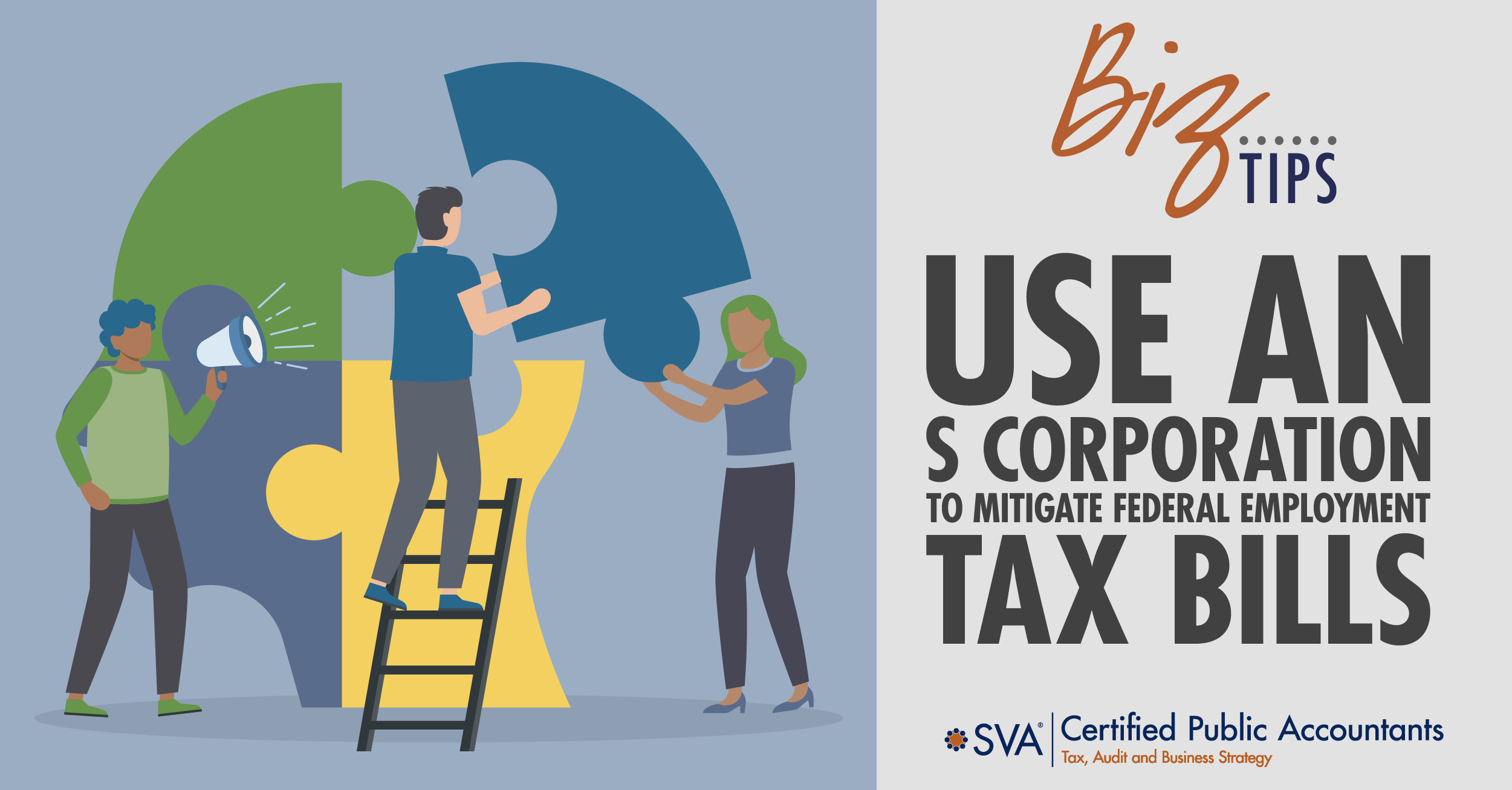If you own an unincorporated small business, you probably don’t like the size of your self-employment (SE) tax bills. No wonder!
For 2023, the SE tax is imposed at the painfully high rate of 15.3% on the first $160,200 of net SE income. This includes 12.4% for Social Security tax and 2.9% for Medicare tax.
The $160,200 Social Security tax ceiling is up from the $147,000 ceiling for 2022, and it’s only going to get worse in future years, thanks to inflation.
Above the Social Security tax ceiling, the Medicare tax component of the SE tax continues at a 2.9% rate before increasing to 3.8% at higher levels of net SE income, thanks to the 0.9% additional Medicare tax on all income.
(Download Video Transcript)
The S Corporation Advantage
For wages paid in 2023 to an S corporation employee, including an employee who also happens to be a shareholder, the FICA tax wage withholding rate is 7.65% on the first $160,200 of wages: 6.2% for Social Security tax and 1.45% for Medicare tax.
Above $160,200, the FICA tax wage withholding rate drops to 1.45% because the Social Security tax component is no longer imposed. But the 1.45% Medicare tax wage withholding hits compensation no matter how much you earn, and the rate increases to 2.35% at higher compensation levels thanks to the 0.9% additional Medicare tax.
An S corporation employer makes matching payments except for the 0.9% additional Medicare tax, which only falls on the employee. Therefore, the combined employee and employer FICA tax rate for the Social Security tax is 12.4%, and the combined rate for the Medicare tax is 2.9%, increasing to 3.8% at higher compensation levels — same as the corresponding SE tax rates.
Note: In this article, we refer to the Social Security and Medicare taxes collectively as federal employment taxes, whether paid as SE tax for self-employed folks or FICA tax for employees.
Strategy: Become an S Corporation
While wages paid to an S corporation shareholder-employee get hit with federal employment taxes, any remaining S corporation taxable income that’s passed through to the employee-shareholder is exempt from federal employment taxes. The same is true for cash distributions paid out to a shareholder-employee.
Since passed-through S corporation taxable income increases the tax basis of a shareholder-employee’s stock, distributions of corporate cash flow are usually free from federal income tax. In appropriate circumstances, an S corporation can follow the tax-saving strategy of paying modest, but justifiable, salaries to shareholder-employees. At the same time, it can pay out most or all of the remaining corporate cash flow in the form of federal-employment-tax-free shareholder distributions.
In contrast, an owner’s share of net taxable income from a sole proprietorship, partnership, and LLC (treated as a partnership for tax purposes) is generally subject to the full ravages of the SE tax.
Potential Negative Side Effect
Running your business as an S corporation and paying modest salaries to the shareholder-employee(s) may mean reduced capacity to make deductible contributions to tax-favored retirement accounts.
For example, if an S corporation maintains a SEP, the maximum annual deductible contribution for a shareholder-employee is limited to 25% of salary. So the lower the salary, the lower the maximum contribution. However, if the S corporation sets up a 401(k) plan, paying modest salaries generally won’t preclude generous contributions.
Other Implications
Converting an unincorporated business into an S corporation has other legal and tax implications. It’s a big decision. Our professionals can explain all the issues.
© 2023

